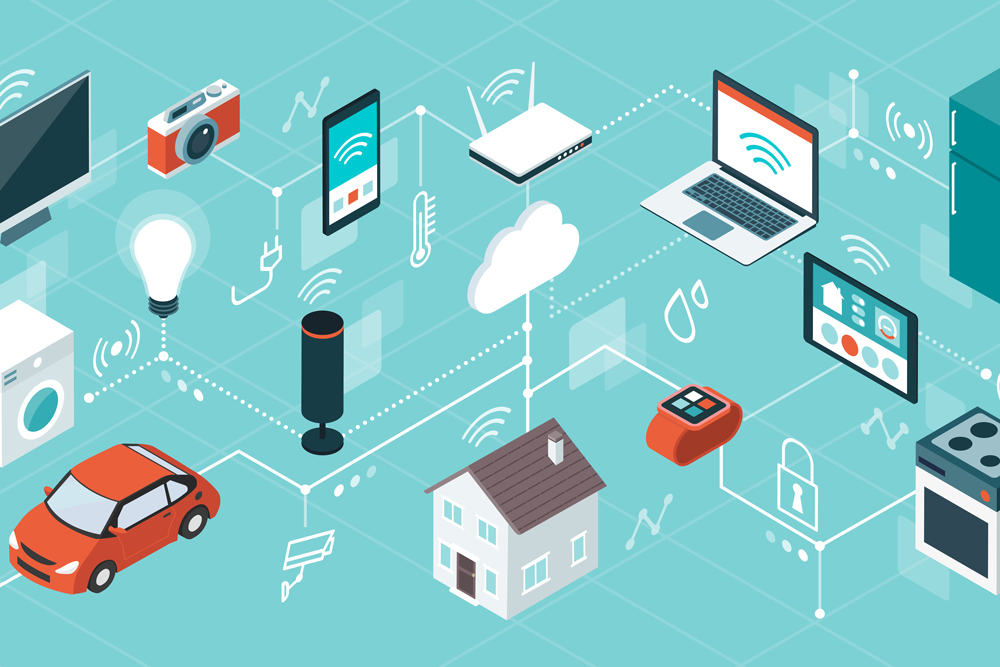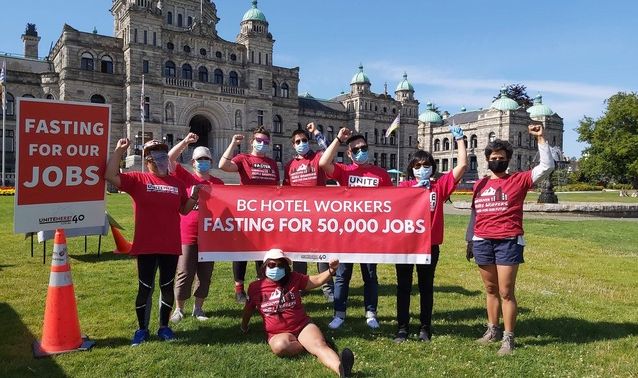The internet has become essential for almost all Canadians due to COVID-19. Suddenly, millions of workers are told to work from home, via the internet. Education is forced online, with teachers discovering that many students don’t have access to computers, laptops or even the internet. People need to go online to contact banks, essential services, doctors or utilities. On-line social connections are almost the only human to human contact people have. Even applying for income support aid (CERB, EI, etc.) requires the internet. Yet millions of Canadians have no service and millions more or lack an adequate service
Having all public spaces stripped away from us by COVID-19 has forced us to reckon with digital universality like never before. A few video chat apps have replaced face-to-face socializing, which, while better than nothing, are taking a toll on our energy. The online throttle has been revved up like never before, with massive tech platforms downgrading their video quality to accommodate the huge increase in traffic. Clearly the internet is a necessary service for Canadians, but the providers are failing millions.
In 2016, the Canadian Radio-television and Telecommunications Commission (CRTC) declared the internet a basic service that everyone should have access to, in the same class as water and power. However, just like the failing water system that has made boil water advisories so common on Indigenous reserves, internet providers are failing to meet the basic internet needs of millions. Much of rural Canada has no internet and most people in rural areas have poor service. Even in cities, where, in theory service is available, many cannot afford it.
Nearly 2.2 million Canadians have no internet. The single largest reason is cost of the internet service, followed by the cost of equipment and the unavailability of internet service.
A further five million Canadians have inadequate service with slow internet speed. The CRTC defines adequate internet speed as 50/10 Megabits per second (Mbps) upload and download, respectively, with unlimited data access. Currently, 15% of Canadians, and 60% of rural communities, do not meet this threshold. That’s over five million underserved Canadians. This is on top of the “internet blackout areas,” rampant throughout rural and northern Canada.
Profit driven companies do not provide all Canadians with good quality high speed internet. It should be a public service, democratically run to benefit Canadians and not just a few shareholders. Current internet provision is totally dominated by four telecommunications giants: Rogers, Bell, Telus, and Shaw. These operate a virtual monopoly (technically an oligopoly) and are some of the most loathed companies in our country. The current crisis has provided insight into these companies’ rent seeking behaviour, as they removed internet data caps – and charges for exceeding the caps – for all Canadians during COVID-19, which demonstrates these artificial caps only existed to generate more profits in the first place.
Even for those where high speed internet is available, the cost to most Canadians, is prohibitive. According to a study by Picodi, Canada’s broadband prices rank fifth highest in cost for 100 Mbps broadband. However, this fails to tell the extent of the story because several countries, including France and Singapore, don’t even offer internet as slow as our fastest available plans. In an blatant example of the internet providers’ oligopolist status, some Canadians have seen their internet rates increase during the pandemic.
Capitalism claims to provide the best service at the best prices. This is a total lie as far as the internet goes. All the failings show that the profit motive unnecessarily restricts and prevents vital services. The CRTC claims and life shows that the internet should be a basic and essential service viewed as a human right, yet seven million Canadians are left behind.
High speed internet should be a public service available to all at the lowest possible cost. Clearly, the four near-monopoly companies are interested in profit rather than service. They have made enormous profits – Rogers, Shaw, Bell, and Telus made nearly $8 billion in combined profits in 2019.
The profit driven companies claim it is too expensive for them to provide high speed internet to all Canadians. The federal government is aiming to have high speed internet for all by 2030, spending $6 billion to achieve this. While it’s tough to pin down an exact estimate for this, this House of Commons report suggests $7 billion, while this estimate is in the ballpark of $10 billion. The current government is spending close to $6 billion to upgrade the internet, in effect a public subsidy to very profitable companies. Liberals love taxpayer subsidies of private companies.
Publicly owned broadband and telecommunications is the smarter route for both cost and democratic control. If the Canadian government nationalizes the industry, with compensation paid to small shareholders but not the fat cats, it would drastically reduce costs for users and ensure high quality provision for all. It would rid us of these hated companies.
The $8 billion profits would pay for high speed internet for all of Canada in a few years, rather than lining executives’ and shareholders’ bank accounts, and save $6 billion of taxpayer subsides. After that, the profits could be used to cut costs for the internet and for mobile phones, also among the most expensive in the world.
Further savings would come from ending the duplication of four companies. The big four spend nearly $200 million a year on advertizing, all to overcome Canadians dislike of their profit gouging. The CEOs of the four received an outrageous $59.5 million in 2018; this wasted money could be used to reduce bills.
At present, the so-called customer service department constantly phones people, seeking to sell more products, or deflect genuine complaints. In a public service they would provide real support and service – what a change for both the workers and customers that would be!
Canada’s unique geographic concerns make internet nationalization a perfect project for Canadians to rally behind. With such a gigantic country, and so many difficult to reach towns, especially in Northern Canada, the private sector has shown no interest in undertaking the infrastructure investments necessary to cater to 100% of Canadians. Canada’s urban-rural digital divide is staggering, and an internet provider liberated from the tyranny of free market profit would quickly close this gap. The answer to these concerns, rather than brushing aside the Canadians living in these areas, is to create a logical, national public service.
Capitalism doesn’t respect human rights; it merely tolerates them, until they become inconvenient to shareholders. We can make the case for internet access as a human right, but our current system can’t even provide food, clean water, and shelter to all Canadians. That’s why we shouldn’t hold our breath for the big telecommunications companies to meet these needs. Canadians need to demand internet nationalization because it redirects our income from CEO bonuses, stock buybacks, and telecom ad campaigns to improving on a public resource that only increases in importance by the year.
This radical rejection of the status quo, and assertion of the importance of human rights, can have a revolutionary impact on the national imagination. By expanding the scope of what are considered human rights, we can push forward the fight to not only secure food, water, shelter, etc. for everyone in Canada, but also push further to prioritize the quality of life for those on the bottom, rather than continuing to enable an exclusive fantasyland for a tiny elite minority. Running a nationalized Canadian internet provider through a democratic, socialist, worker-managed and controlled system, would improve internet service for all Canadians, and save a fortune by reinvesting the surplus value currently extracted by elite telecommunications executives.




